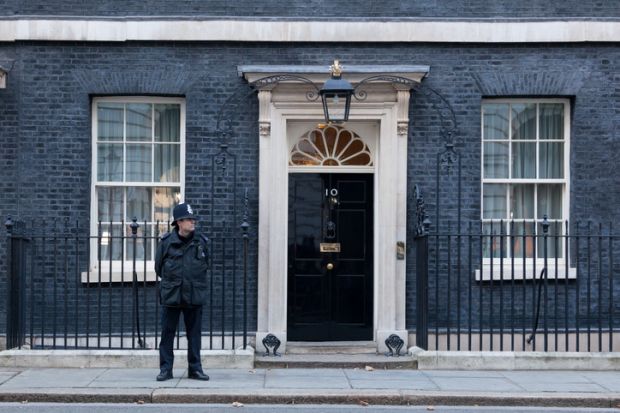Members of the public are divided on UK prime minister Rishi Sunak’s crackdown on “rip-off degrees”, while “misunderstanding” in their notion that going to university makes people lean left on economics suggests narratives about “woke” universities may have had impact, according to polling and analysis.
Queen Mary University of London’s Mile End Institute – a centre studying and promoting public discussion of the major challenges facing British politics and policymaking – looked at public attitudes on the value of universities, via YouGov polling of 1,066 adults living in London.
The polling asked about Mr Sunak’s announcement of a plan to cap student numbers on courses in England falling below the Office for Students’ quality thresholds, a plan the prime minister billed as targeting “rip-off degrees”.
It found 33 per cent of Londoner respondents supported the policy, 33 per cent opposed it, while a further 34 per cent either didn’t know how they felt about the policy, or neither supported nor opposed it.
The policy was “strongly supported” by 12 per cent, but “strongly opposed” by 19 per cent.
Elizabeth Simon, a postdoctoral researcher in British politics at the Mile End Institute, said it was “interesting to note how this policy seems to play much better with some groups than others; for example, older Londoners are much more supportive of this than younger Londoners, as are those who voted Leave and those who voted Conservative in 2019”.
While the policy “doesn’t resonate with London respondents overall, it does resonate much more clearly with those Londoners who are the key voters the Conservatives will be targeting ahead of an upcoming election”, she added.
Just 7 per cent of respondents thought that studying at university offers no benefits to individuals (rising to 11 per cent among Londoners without degrees), while 9 per cent of respondents believed universities offer no benefits to society (rising to 14 per cent among Londoners without degrees).
Dr Simon said there was “a clear consensus among the vast majority of Londoners – regardless of whether they themselves have attended university – that universities offer important benefits both to the individuals that attend these institutions and to society more generally”.
The polling also found that 67 per cent of respondents thought that the experience of studying at university generally changes individuals’ attitudes and values. Of those who thought that was the case, 43 per cent believed the experience of studying at university “makes individuals more socially liberal”; 24 per cent believed the experience of studying at university “makes individuals more economically left-leaning”; and 24 per cent believed the experience of studying at university “makes individuals more pro-EU”.
That was against only 7 per cent who thought the experience of studying at university “makes individuals more economically right-leaning”.
Dr Simon was the author of a previous paper analysing data on siblings to conclude that studying at university “only has a modest direct causal effect on British graduates’ [political] attitudes”; with that effect “only liberalising in the case of gender-role attitudes – HE attendees actually develop slightly more conservative economic and environmental adult attitudes, relative to non-attendees”. Other UK research has also suggested that going to university makes people more right-wing on economics.
Dr Simon said the fact that “people are more likely to say university moves economic attitudes to the left than right” – a “misunderstanding” that is “contrary to the academic evidence” – was “unsurprising” to her.
“I wonder whether this relates to the ‘woke’ universities discourse we’ve seen play out in the media in recent years,” she added. “Perhaps these results show that this has taken hold in the minds of the public.”




